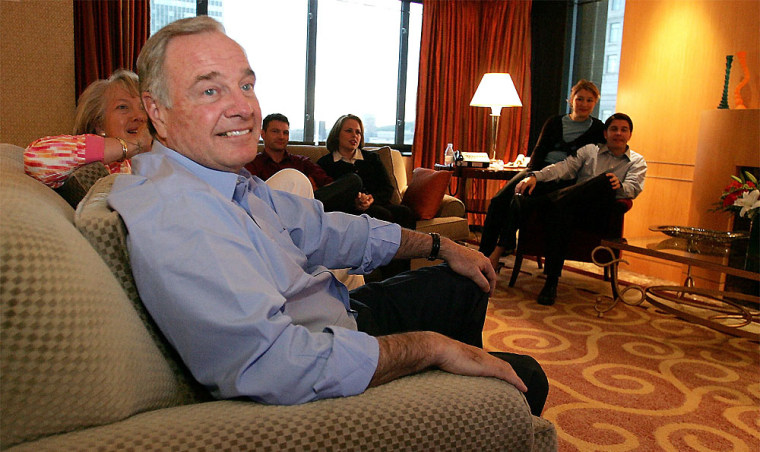The Liberal Party lost outright control of Parliament on Monday, ending an 11-year monopoly on power, but easily won the largest share of seats and will now try to lead Canada’s first minority government since 1979. In Quebec, separatists made major gains.
Though dogged by scandal, and pressed hard by a newly unified Conservative Party, the Liberals of Prime Minister Paul Martin prevailed by largely holding their ground in Ontario, the most populous province and the pivotal battleground in the election.
Most minority governments in Canada’s past have proven unstable and short-lived. The Liberals may try to govern in an informal coalition with the left-wing New Democratic Party, a favorite of trade unions and an advocate of higher taxes on the affluent.
The Liberals had won three straight landslide victories under Jean Chretien, starting in 1993, and there were signs during the campaign that many Canadians were disenchanted with the party and its recent entanglement in a financial scandal.
Concern over Harper
However, the results suggested a widespread reluctance to turn over power to the Conservatives’ relatively untested leader, 45-year-old Stephen Harper, whose stances on tax cuts and social issues prompted concerns about unwelcome change.
Nearly complete returns showed the Liberals winning 136 seats overall, short of the 155 needed to single-handedly control the 308-seat House of Commons, but far more than 96 seats the Conservatives were projected to win.
In Quebec, the Bloc Quebecois, which advocates independence for the French-speaking province, did well at the Liberals’ expense. The Bloc was on track to boost its share of Quebec’s 75 seats from 33 to 54, a performance likely to fuel talk of another separatist attempt to hold a referendum on secession from Canada.
“The Bloc is the only party Quebeckers have faith in to defend their interests,” said the party’s jubilant leader, Gilles Duceppe.
The New Democrats were winning 21 seats, which — added to the Liberals’ share — would be just enough to forge a majority in the House of Commons.
In the outgoing Parliament, which had 301 seats, the Liberals held 168 seats, the Conservatives 73, the Bloc Quebecois 33 and the New Democrats 14. There were nine independents and four vacant seats.
The final polls taken before the election suggested the Liberals and Conservatives were deadlocked, and many analysts had predicted the Conservatives would win the most seats.
Thus the results, giving the Liberals a comfortable plurality, were a relief to Martin, the 65-year-old Liberal leader who replaced Chretien as prime minister last year. He had called the election five weeks ago, hoping the results would provide a solid mandate for his administration.
Star goalie elected
The outcome was a deep disappointment for Harper and others who had worked relentlessly in recent years to merge rival right-of-center factions and end the divisions that had enabled the Liberals to dominate recent elections. The merger took place last year, but the hoped-for breakthrough in Ontario — home to one-third of the population — failed to materialize.
Harper congratulated Martin and the Liberals, but added, “We will continue to hold them accountable.” He said the Conservatives should be proud of gaining more than 20 seats over the last election.
Among the first-time Liberal winners in Ontario was hockey Hall of Famer Ken Dryden, former star goalie of the Montreal Canadiens. He remarked on the Conservatives’ fade after a strong start to the campaign.
“If in fact in the early days of a campaign it’s time to vent, in the final days it’s time to think,” Dryden said.
Although the Liberals and Conservatives had much in common — including support for the national health insurance system and reluctance to deploy troops in Iraq — there were some key differences. Harper wanted to slash taxes for the middle-class, increase the military ranks from 60,000 to 80,000 and pull Canada out of the Kyoto Protocol, which commits industrialized nations to reduce emissions of greenhouse gases.
Harper, 45, started the campaign strongly, but was placed on the defensive by repeated Liberal claims that he would try to move Canada to the right on social policies. He denied that he would seek restrictions on abortion, but conveyed some doubts about Canada’s steady move toward legalization of same-sex marriage, which already is legal in three provinces.
Roughly 22 million voters were eligible to cast ballots. In the last national election, in 2000, turnout was the lowest ever at 61 percent.
